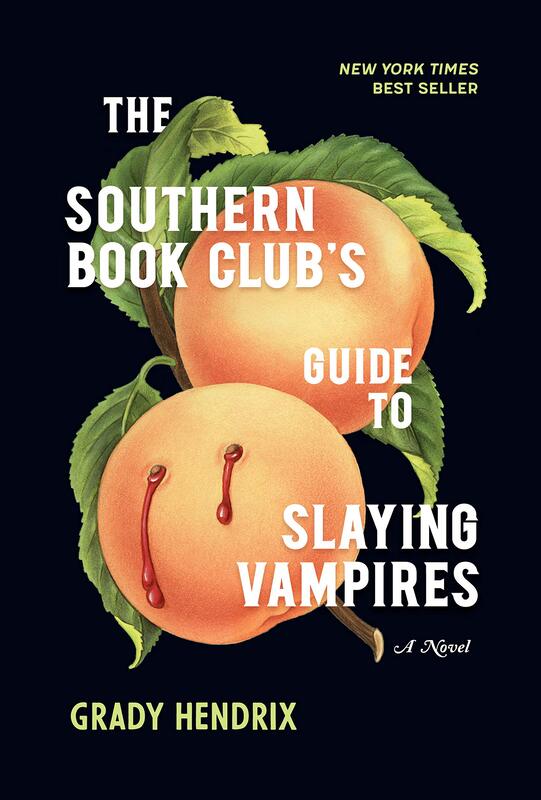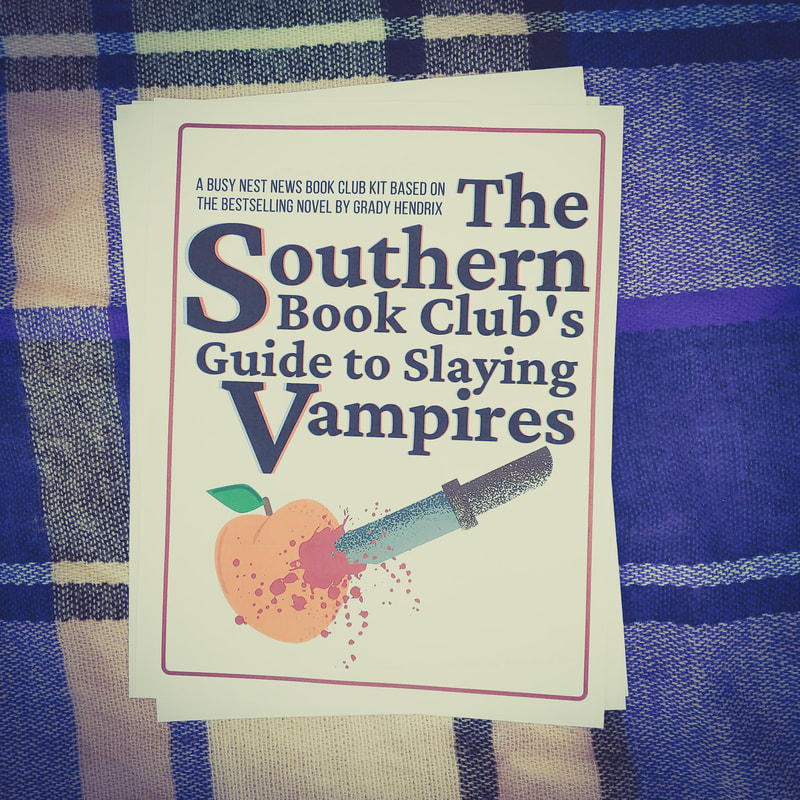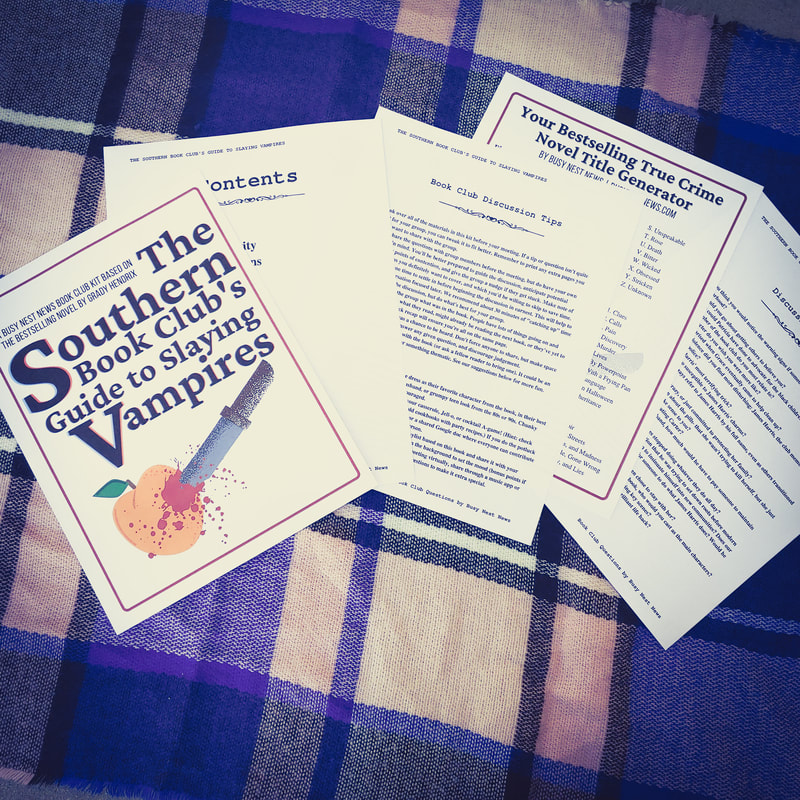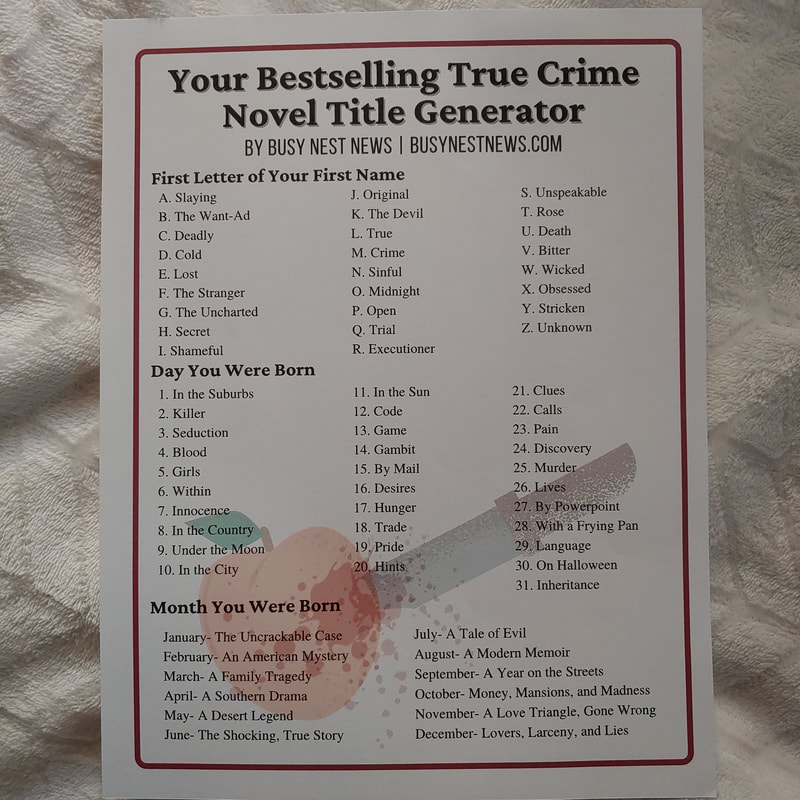|
Hello, dear readers!
We're really excited, because it's time for our annual Jólabókaflóð book exchange event! Here at Busy Nest News, we love books and reading. We've always been enchanted by the Icelandic tradition of gifting books throughout the winter holidays. Last year we decided to join in and host a book exchange. It was new, it was scary (what if no one did it??), it was fun, it was international! In short: it was a success, so we've decided to do it again.
1 Comment
by Brianna Hi, friends! You must know by now that here at Busy Nest News, we specialize in nonfiction books. All of our kits are based on the best works in self-improvement, leadership, and relationships. Here's the thing, just because that's our specialty, doesn't mean that's all we read. Ariel and I love a fun fiction book. This summer we read an incredible work of fiction that blew us away! And...we're reluctant to recommend it to people, because it should come with just about every trigger warning known to society, except maybe loud noises. It's the bestselling book, The Southern Book Club's Guide to Slaying Vampires, by Grady Hendrix and it is DARK. But we couldn't get it out of our heads. So now, here we are not only recommending this book, but offering you a book club kit to go with it. It's the only one for this title, but it's just like our mini kits. If you're wondering if a Busy Nest News mini kit is right for you, and reading this book won't ruin your day, give this kit a try. It'll give you a great feel for what it's like to use our products. Oh, yeah. And it's free. This totally free download comes with discussion tips, an ice breaker activity we can't stop chuckling over, and 20 great discussion questions to kick off your meeting. Plus it has a charming 1980s true crime novel-style cover that I'm way too proud of. Bonus: This whole kit works great for traditional or virtual book clubs, because we know about real life. Without further ado, here it is!
By Ariel Grit: The Power of Passion and Perseverance by Angela Duckworth answers one of life's seemingly unanswerable questions, “why do some people succeed while others fail?” What is the elusive secret ingredient? Duckworth reveals that grit, not natural talent, is the largest predictor of success. Grit is passion and sustained persistence in pursuit of a long term goal for the sheer joy of achievement. We like to believe that you either have “it” or you don’t. We cling to natural talent because it lets us off the hook. I haven’t succeeded? Well I must not have “it.” The truth is that we don’t have “it,” yet. It being grit and yet being the key word! Because as Duckworth shows us you can grow grit from both the outside in and the inside out. And, for those of us willing to put in the work, THAT is a comforting thought.
By Brianna Updated 10/22/2020 When people think about military training, they usually picture some version of basic training. And why wouldn’t they? The vast majority of military movies spend a large amount of time on the protagonist getting through boot camp. Basic training is a big deal, but the truth is that it’s just the beginning (hence the word "basic"). After boot camp, the training continues in the form of schools, field ops, distance learning classes, and ongoing mentoring. But there’s one type of training that is key for developing leaders that's often overlooked by the casual observer of military life. The great news, though, is that you can use this technique to develop yourself as a leader, as well as other aspiring leaders in your team.
By Ariel Full-size versus mini kits Here at Busy Nest News, we realize that every book club has unique needs. That is why we have many options to choose from including our mini and full-size book club kits. The Busy Nest News mini book club kit, also known as the “one and done” is an updated version of what we currently consider a typical book club experience. The kit contains discussion questions, tips on how to run a book club, icebreakers, and one group activity. The core of any book club experience is the discussion questions. Our questions are quality. These will not be your run of the mill, “what did you think of x, y, and z?” Our questions will push you to dig into the content and come up with new ideas. They do not assume that you are reading this book because you already agree with what the author has to say. They are developed for those who have come to question and learn. If you are willing, we will help to expand your horizons. Our ice breakers are creative, thought-provoking questions chosen so that even old friends might learn something about each other. The icing on the cake is the group activity. We choose our group activity to maximize engagement and minimize hassle for the discussion leader. Our activity will encourage full group participation with minimal effort on your part. by Brianna We, like most everyone else, are stuck at home. When you live with other people, being forced to be in close quarters with each other for an extended period can become frustrating, or a fresh chance to improve your relationships. To make the most of this time, we're trying for the latter. So this week, we're looking at our relationships through the lens of the five love languages. In case you haven't read Gary Chapman's book, "The 5 Love Languages," here's a quick rundown. Chapman believes that while everyone expresses love (and craves it to be expressed to them) in their own way, these can all be organized into five groups. Chapman calls these groups the five love languages. The word "language" is really key here, because if someone tried to tell you that they love you in a language you didn't understand (like Arabic or German), you wouldn't receive the message. But, it would be possible for you to learn that other language, and then you would be able to understand the other person's message of love. That's important, because it means that while some of the love languages don't come naturally to us, there's hope that we can learn to give and receive love in them anyway. So what are the languages themselves? There's Words of Affirmation, Physical Touch, Quality Time, Acts of Service, and Gifts. To learn more about each language, your best bet is to read Chapman's books. But to find out which is your primary (or even secondary) love language, take the quiz on Chapman's website! Ariel and I know that between our two families, every love language is represented. So we have to work on all of them to make sure that we're all feeling appreciated while in quarantine. With small children, Chapman advises to practice all five languages anyway, since they and their preferences are still developing. And while adults have more fixed love needs, in unusual times (quarantine) or during transitional phases (around a big move, or when a baby is born), your needs might temporarily shift. All that is to say, this is the perfect time to take stock of what we and our family members need in order to feel as loved and whole as possible. You can join us and work on the five love languages in your own home, too! From now until April 8th, 2020, we're giving away our mini kit for "The 5 Love Languages." If you don't already own the book, check out the ebook or audiobook from your local library, or get it from Amazon. You and your partner can read the book and use our discussion questions to connect with each other and the material. If you want to use our kit to do a virtual book club with friends or teammates, check out our article about how to easily run a virtual book club.
by Brianna In these unusual times many of us are finding ourselves at home a lot more. Whether we’re compelled by the government, just out of places to go, or are volunteering our isolation to protect the vulnerable, we’re all a bit stuck. If you’re not working from home or homeschooling kids (or you are, but need some non-work or kid-related interaction for your sanity), you’re probably looking for something to do. Why not start a book club? We’ve had great success with our kits being used as virtual book clubs, but awesome as they are, you can do this without our materials, too. We’ll walk you through setting up a virtual book club for your own group. Following these instructions, you’ll see how easy it is to run a club that allows everyone to participate at their leisure and gives you all something to look forward to checking on social media besides the latest virus or shelter in place memes.
1. Pick a book You probably have a good idea what some of your friends might like to read or re-read. Our kits focus on self-improvement books, but you could pick anything! An old classic or new bestseller, as long as you and a few friends are willing to chat about it, it’s a winner. 2. Make a group Form a secret group on Facebook. Throw a cute picture of the book you’ll be reading into the banner, and invite all your friends. Anyone who has the energy to participate and willingness to read the book you’ve chosen can accept your invite and find themselves a copy. Many libraries are closing down, but others are offering curbside pickup, and any that offer online resources (like Overdrive/Libby, RBDigital and more) still have those available. Even if you can’t leave your house, chances are good everyone can get their own copy of the book. 3. Brainstorm questions & find content As the discussion leader, you’ve already selected the book your group will read. Read ahead of everyone else to find topics and themes that tie in. Scan the internet for relevant blogs, articles, and memes. Also, ponder some questions the group could enjoy discussing. If you’re using one of our big kits, send the Members Only guides in printed booklet or virtual PDF to your members so they can ponder more personal questions as they read the book. They’re beautiful in print or on tablets! 4. Ask (and answer) questions Ask the group your discussion questions! The best way to do this is to post each question as its own status, or even make it into an attractive graphic that’s easy to spot. Then, everyone can comment with their answers below when they get a chance. The “reply” feature in Facebook’s comment section essentially turns any post into a forum for that single question. It’s surprisingly organized! Speaking of organized, a good strategy is to schedule your questions and other content ahead of time. This way you can spread it out over several days to keep things fresh for the group, and you won’t forget to post on a day that’s especially demanding. Don’t forget to answer your questions! You don’t have to be the first one to offer an answer every time, but have a response or another way of wording the question at the ready. If you want the feel of an in-person book club, consider using a video call service like Zoom. If you’re using one of our big or mini kits, you don’t have to brainstorm unique questions! Just post the questions we provide and join the conversation. 5. Repeat with another book! Finally, when the group has had its fun, consider choosing another title together. Even when you can all see each other in person again. This might be your new favorite way of running a book club, or a temporary measure to stave off boredom and cabin fever. Either way, we hope you’ll give it a try! by Brianna What's in a book club?If you’re using our book club kits, the answer is “questions.”
As group members read through the selected book, our reading guides ask them a variety of questions. Questions to startle, questions to remind, and questions to explore. We come at the text from different angles, so the questions aren’t boring or a mere reading comprehension quiz. What would be the fun in that? By answering our engaging questions while reading the book, club members will come to the meeting ready to share real insights. Awesome! Even better? The discussion leaders have a different set of questions. Their discussion questions are in the same vein as those in the members’ reading guides but aren’t too similar. We love spontaneity and preparation in equal measure, and we believe that having coordinating (but not identical) questions will leave everyone feeling prepared but unrehearsed. How can you bond over genuine sharing when you filter out all the real stuff before the group has even assembled? Answer: you can’t. By keeping the discussion questions separate from the reading questions, we’ve left you with a safe amount of the element of surprise. If you use our book club kits, what don’t you have to do? You don’t have to come up with insightful discussions questions. Gone are the days when you had to scour the internet and print out three lists of the same questions, only worded slightly differently. What else don’t you have to do? You don’t have to buy into the author or publisher’s premise. When you use the questions in the back of the book, you’re using materials that assume you agree with the author and their instructions for your life. Our questions assume a certain amount of receptiveness to the author’s message, but they also probe for areas where you may disagree with a book’s content. Because not every paradigm is right for every person, and we know that. Don’t be afraid to engage with the text- we sure aren’t! by Brianna What's in a book club?In our book clubs, we have journal prompts.
People love journal prompts, and we find that journaling about self-improvement books really helps one synthesize and evaluate their message. With this in mind, we sprinkled journal prompts throughout our reading guides, for both the discussion leader and the group members. To be clear: you do not have to share your journaling with the group. The discussion questions never ask you to share your journals, though in a particularly intimate group you may end up sharing anyway. But we ask some pretty personal, self-exploratory questions to get you really thinking about how you’re engaging with the text at hand. Want examples? Here’s the ballpark:
What isn’t up to you? Coming up with thought-provoking journal prompts! Honestly, all book clubs should have a journaling component. By using our kits, you’re ensuring that your whole group is getting a fuller book club experience than any other. It’s ok to be pleased with yourself; we are, too. by Brianna What's in a book club?One answer to this question, in our book club kits, is modules.
OH my bus, that is not an exciting word, “modules.” But the modules themselves are exciting. They’re what give our book clubs flexibility and thoroughness. Most book clubs meet once a month to talk about 400-1000 pages. Unless you’re a great note-taker or have an amazing memory (hello, Mom Brain), there’s no way you remember the rich details from the beginning of the book by the end of the month. Our modules solve that problem. Most of our kits break the book at hand into four modules. You can then meet as frequently as you like to discuss the chapters in each module. Some groups could increase their meetings to being weekly (yay, friendship!), while others could keep meeting monthly but have more in-depth talks and give people more time to prepare (yay, prep time!). The first club using one of our kits is meeting every-other-week. It’s up to you! What isn’t up to you? You don’t have to break up the book into chapter groupings that make sense. We already did that for you. You don’t have to come up with insightful questions for group members to answer while they’re reading. We already thought of those. Nor do you have to concoct gripping, conversation-starting prompts for your meetings. We did that, too. See? Modules mean flexibility, and flexibility is awesome. Ipso facto, modules are awesome. Order one of our kits and see for yourself the magic of our modules. |
AuthorsAriel and Brianna are friends who met while working in a library. Now they collaborate to develop life-enhancing book club experiences. Archives
June 2023
Let's keep in touch!Categories
All
|



















 RSS Feed
RSS Feed